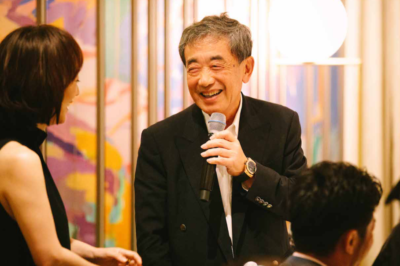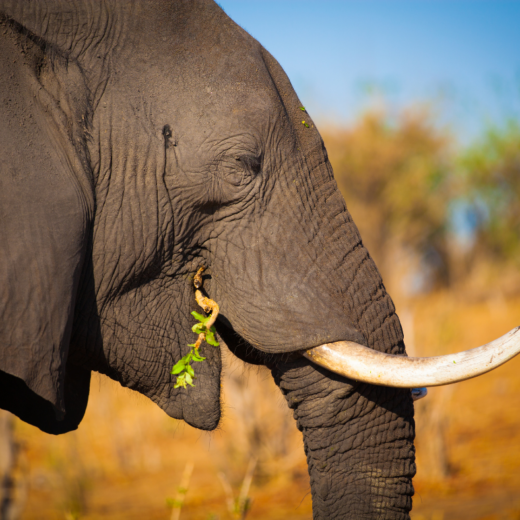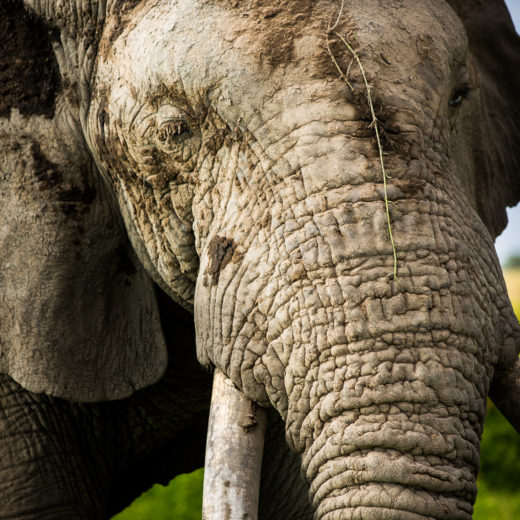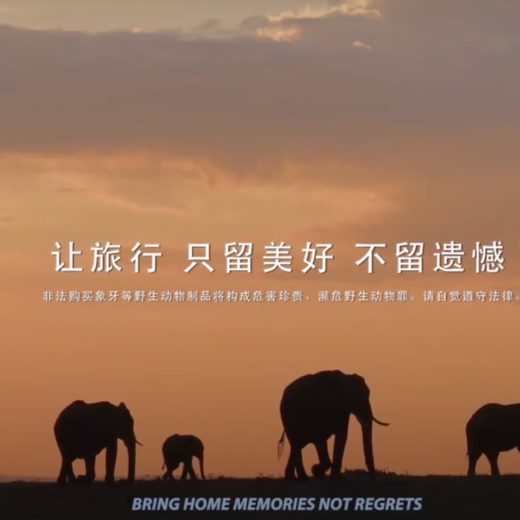
More than 35 top CEOs, athletes, musicians and actors joined together with WildAid and Tears of the African Elephant (TAE) in Tokyo recently to show their support for elephant conservation and ending Japan’s consumption of ivory.
Among Japan’s most influential citizens, the participants shared their outrage about elephant poaching and Japan’s legal ivory trade, the last remaining open major ivory market. Every year, up to 33,000 elephants are killed for their tusks. Roughly 80% of Japan’s ivory consumption is for hankos, which are used to sign official documents. From marriage licenses to auto purchases, almost every aspect of life requires a hanko stamp. Recent survey results indicate that 80% of the Japanese public remains unaware of the elephant ivory crisis.
Both former Japan National Rugby Team captain Toshiaki Hirose and popular actress Marika Matsumoto said they were “shocked” to learn about Japan’s demand for ivory and its devastating effects on wild elephant populations in Africa.
“I had no idea until I came in contact with WildAid,” said Matsumoto. “I feel the urgency and we should all do our part to spread the message immediately,” added Hirose.
Representative Director and CEO of Peach Shinichi Inoue agreed: “It is shocking that we didn’t know.”


Christel Takigawa, Founder of Christel Vie Ensemble Foundation, pointed out that Japan’s mainstream media, especially television, does not address conservation or animal-related issues.
“This is a serious problem and therefore we need to engage with other media, including internet-based news and social media.”


At the event, WildAid and TAE presented their latest campaign video, produced by Grey Advertising, called “Hankograph.” The stylized 2,400 frames of stop-motion animation is currently under consideration for a prestigious Cannes Lion award.
As more companies digitize their services, however, there’s a growing call to abandon hankos altogether. Akira Matsumoto, Director of Board and COO of RIZAP and former CEO of CALBEE, says there is “no need for hankos. Why can’t we just use signatures like the rest of the world?”
Ivory is also used in Japan for musical instruments. Prominent pianist Gohei Nishikawa said he recently played an ivory piano at a concert and became dismayed to learn about the source of the ivory.
“I strongly feel as a musician that we have to appreciate the life behind the already existing instruments, and play our part to never buy new ivory products again,” he said.
Fumio Takashima, CEO for the popular Japanese furniture and home décor company Francfranc Corporation, agreed to the idea of developing a certification system for businesses to show support for elephant conservation.
“An elephant-friendly logo would be a useful way for corporations to show support for this cause – something customers could immediately recognize,” he said.
CEO of Francfranc Corporation Fumio Takashima agrees to a certification system supporting elephant conservation.


Other event attendees included Representative Asahiko Mihara, Mariza Ishii, wife of Tatsuya Ishii, the lead singer of Kome Kome Club who recently joined WildAid as an ambassador, and Ken Shibusawa, CEO of Commons Asset Management and great-grandson of renowned entrepreneur Eikichi Shibusawa, who will be the face of the new 10,000 yen bill.
As the last legal market for ivory, Japan continues to fuel concerns that its 160-ton stockpile is an illicit source for other countries. In recent months, China Customs has detected multiple parcels of ivory mailed from Japan at their international mail processing centers.
WildAid and TAE will continue to work with business leaders to build more public support to end Japan’s domestic ivory trade in advance of Tokyo’s 2020 Olympic and Paralympic games. A series of new campaign activities will be rolled out in the coming months and WildAid looks forward to assisting in raising public awareness and helping to secure an announcement from the government to phase out ivory.
WildAid extends special gratitude and appreciation to Professor Seiichiro Yonekura and Ayako Kisa for hosting the event and facilitating a productive discussion on specific commitments and suggestions from the prominent participants.


Stay in touch and get the latest WildAid updates.
SIGN UPAbout WildAid
WildAid is a non-profit organization with a mission to protect wildlife from illegal trade and other imminent threats. While most wildlife conservation groups focus on protecting animals from poaching, WildAid primarily works to reduce global consumption of wildlife products such as elephant ivory, rhino horn and shark fin soup. With an unrivaled portfolio of celebrity ambassadors and a global network of media partners, WildAid leverages more than $308 million in annual pro-bono media support with a simple message: When the Buying Stops, the Killing Can Too.
Journalists on deadline may email communications@wildaid.org


